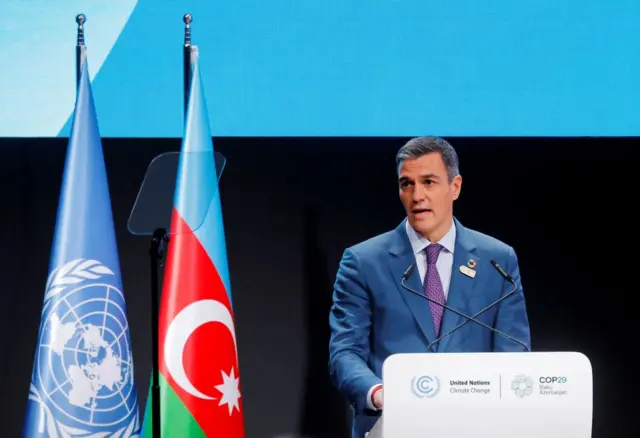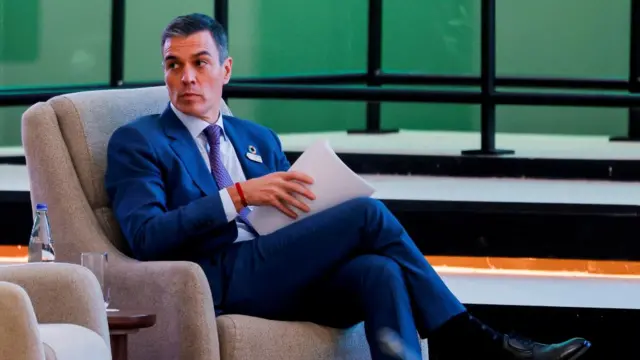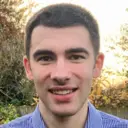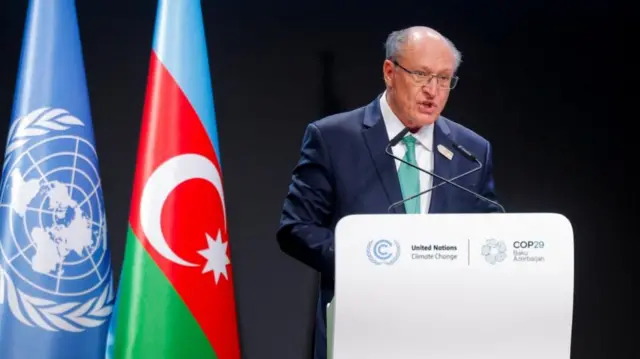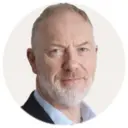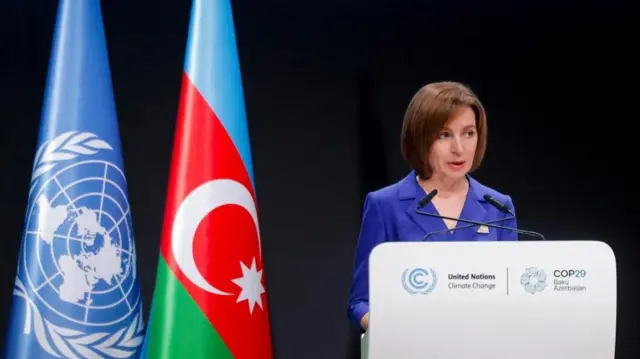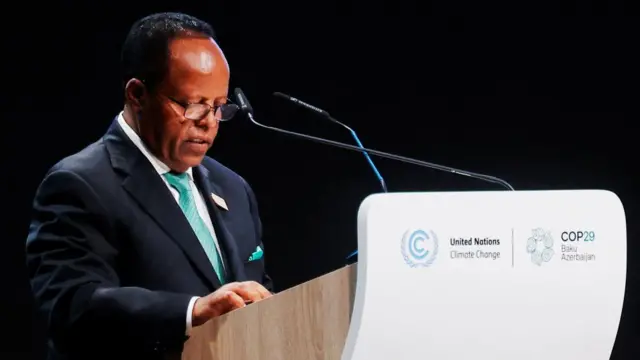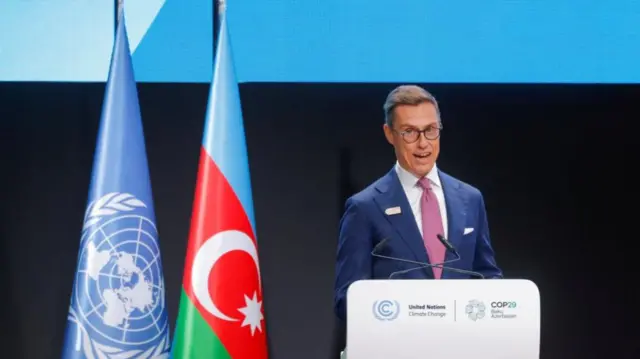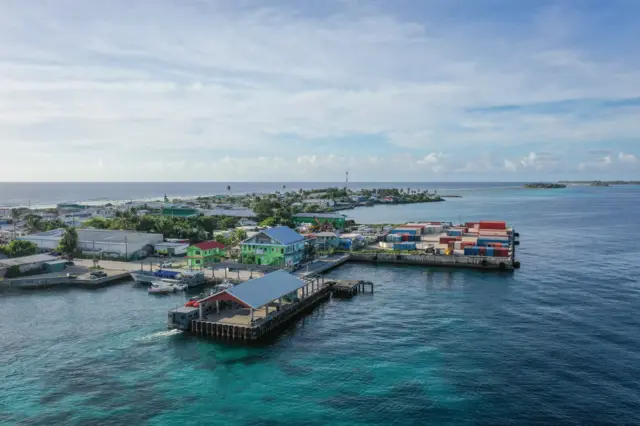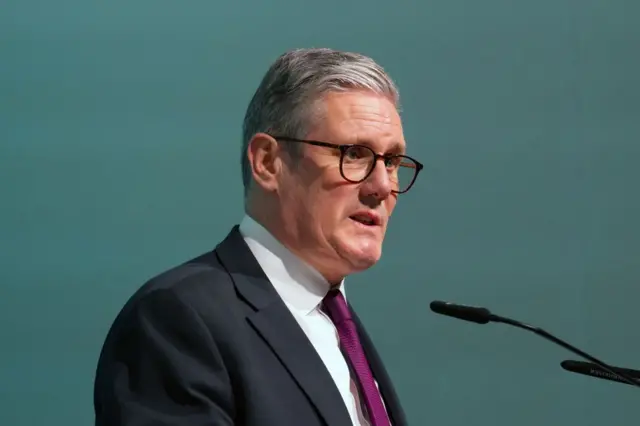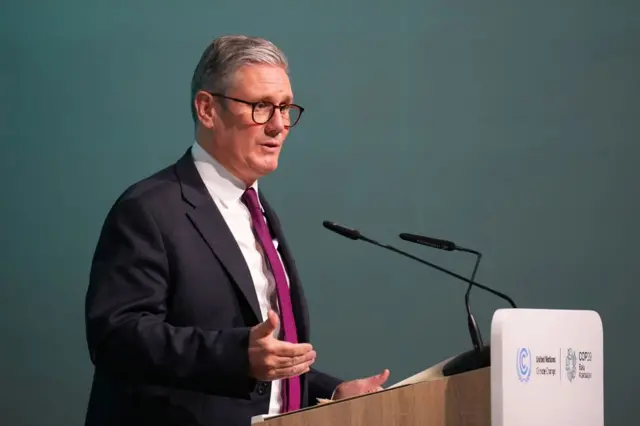Extreme weather suggests planet is facing catastrophe, Barbados PM sayspublished at 14:29 GMT 12 November 2024
Speaking after Sanchez, the prime minister of Barbados, Mia Mottley, tells COP that "we're in the midst of a climate crisis, we're in a season of superlatives."
The extreme weather events that the world is facing "daily" suggest that "humanity and the planet are hurtling towards catastrophe".
The situation requires a serious commitment at this COP to new collective quantified goals to reverse the current trajectory and fund mitigation, adaptation, and loss and damage, and outlines her seven-point plan to make that happen.
Mottley also refers to Hurricane Beryl, which had devastating consequences on the small island, as among the extreme weather events causing damage across the globe.
